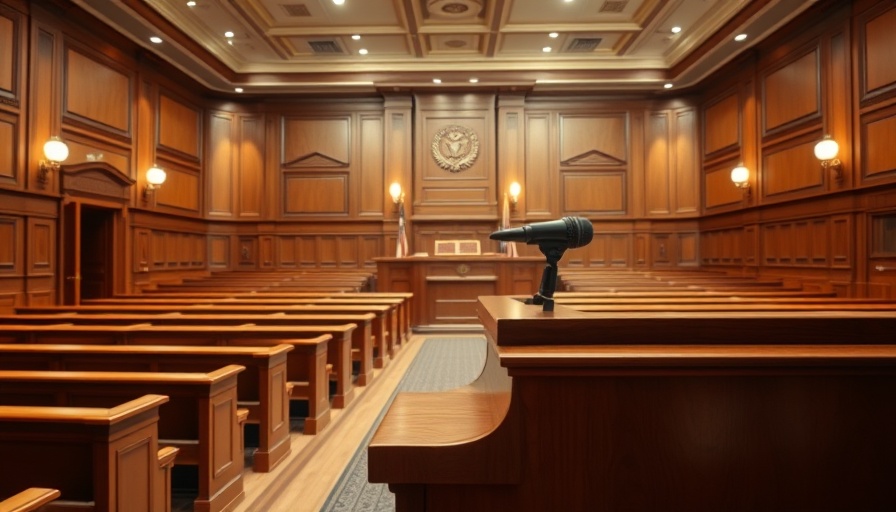
The Importance of Speaking Up in Sentencing
In a recent dissent, Indiana's Chief Justice has sounded the alarm about a critical aspect of our judicial system: the right to speak at sentencing. This right offers victims, families, and even convicted individuals a chance to express their feelings and views in front of a judge. However, the Chief Justice warns that recent trends may put this vital right at risk, which could change the entire dynamic of how justice is perceived in Indiana.
Why This Matters for Our Community
The ability to voice one's thoughts during sentencing is not merely a procedural formality; it's an essential component of our justice system. This platform allows for sharing personal stories, offering emotional closure, and ensuring that the impact of a crime is fully understood. For communities, this dialogue is crucial as it fosters empathy and understanding. Reducing the opportunity for these voices to be heard could diminish public trust in the legal system.
Future Implications: What Could Change?
If the right to speak at sentencing is curtailed, it could lead to significant changes in the courtroom environment. Victims might feel sidelined, potentially leading to a lack of healing post-crime. Meanwhile, offenders may miss the chance to take responsibility and express remorse, both of which can play a vital role in rehabilitation. The broader implications could reshape community relationships with law enforcement and the justice system, leading to increased tensions and distrust.
Engaging in Local Dialogue
Community engagement is key to understanding the implications of this dissent. Public forums and discussions can encourage local residents to voice their opinions and experiences about courtroom practices. As stakeholders, it is vital for local governments, non-profit leaders, and citizens to rally for the preservation of this fundamental right. By doing so, we strengthen our judicial system and reaffirm the value of every voice in our community.
Taking a Stand for Justice
It's essential to monitor developments surrounding this dissent and advocate for the right to express oneself in court. Local leaders, citizens, and organizations should collaborate to ensure that emotional and personal narratives remain an integral part of the sentencing process. Together, we can protect the rights that promote fairness and healing in our legal system.
 Add Row
Add Row  Add
Add 




Write A Comment